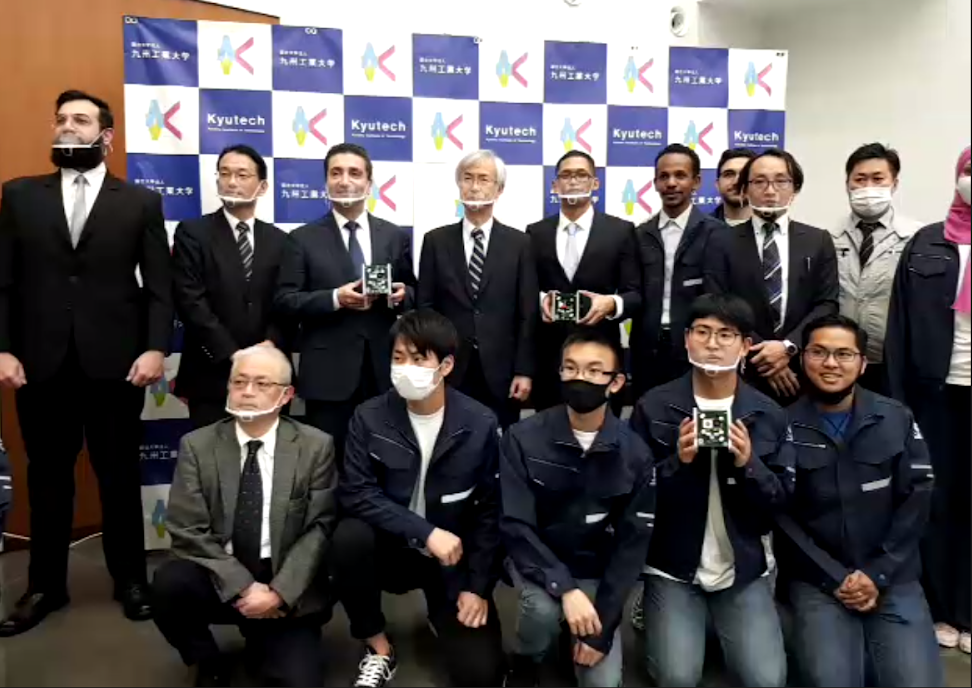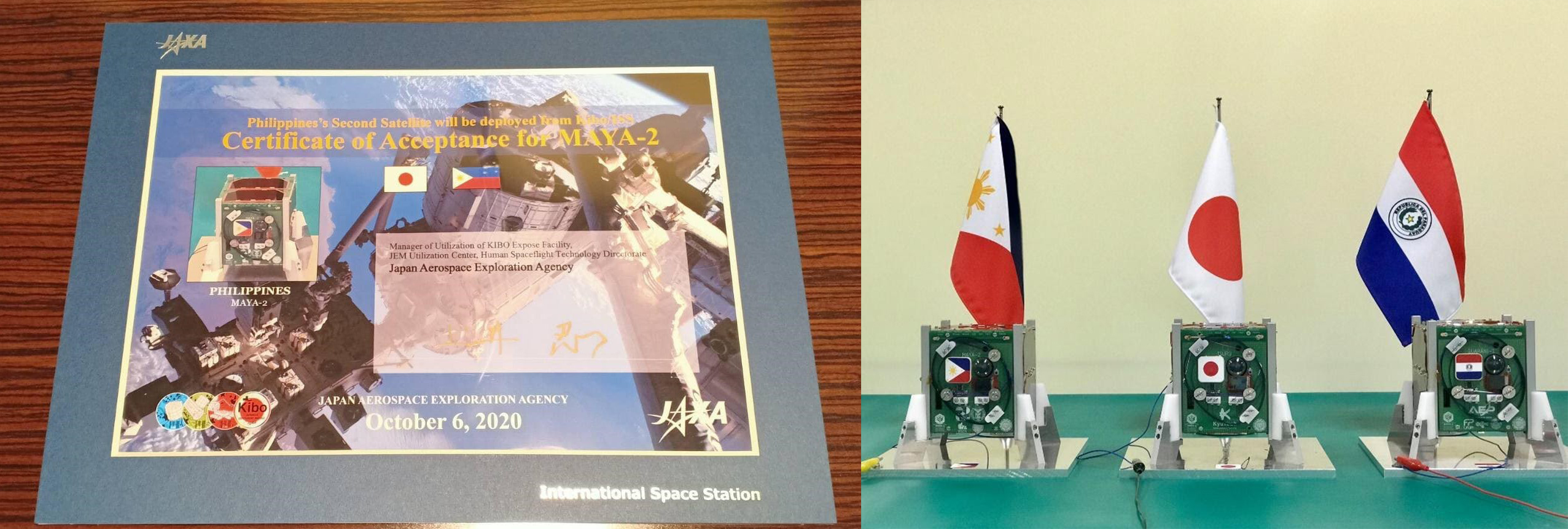Maya-1 will soon have a companion in space.
Maya-2, the Philippine’s second cube satellite (CubeSat), has been turned over to the Japan Aerospace Exploration Agency (JAXA) together with GuaraniSat-1 (Paraguay) and Tsuru (Japan) on September 24, 2020 during the handover ceremony hosted and organized by the Kyushu Institute of Technology (Kyutech). The BIRDS-4 CubeSats were officially delivered and accepted by JAXA on October 6, 2020. This marks the completion of the flight models, which will be launched and released in 2021.
The mission of Maya-2, Tsuru, and GuaraniSat-1 includes obtaining data on the habitat of reduviid bugs, which can cause Chagas disease, in Paraguay through its store and forward payload. Other missions include the demonstration and operation of location information system using amateur radio bands, earth imaging, in-orbit demonstration of a new-generation perovskite solar cells developed by the Ma Laboratory in Kyutech, advanced attitude control using magnetic torquer and the installation of a new reaction wheel, and radioactivity resistance evaluation of consumer parts in orbit for future satellite development.
A total of 14 students (1 undergraduate student and 13 graduate students) worked together from the concept stage to the actual assembly of the satellites, including the definition of the satellite missions and systems, integration work using test models, environmental tests, assembly of launch models, and final tests. Satellite operations will be done by the BIRDS international ground station network consisting of 13 countries, namely, Bangladesh, Bhutan, Ghana, Japan, Malaysia, Mongolia, Nepal, Nigeria, Paraguay, Sri Lanka, Taiwan, Thailand, and the Philippines, which also participated in the BIRDS 1, 2, and 3 Projects.

“The Philippines will strive to continue its support to international cooperation on space programs. We look forward to further cooperation with Japan and Paraguay, and future activities under the BIRDS Project. Our new Philippine Space Agency (PhilSA) will take the lead in expanding international space cooperation,” Ambassador Jose C. Laurel V of the Philippine Embassy in Tokyo affirmed in his message.
“The PhilSA commends the Filipino scholars behind our Maya-2 and the entire BIRDS-4 team, as well as the STAMINA4Space Program and the DOST-PCIEERD for this notable accomplishment. The development and utilization of these nanosatellites serve as an example of value creation in space not just through the data or experiments that they enable and the international cooperation that they foster, but also through the people and high value skills that they build. The PhilSA is committed to further expanding these activities towards a robust local space ecosystem that bridges, uplifts, and empowers the Filipino nation,” said PhilSA Director General Dr. Joel Joseph S. Marciano, Jr.
The participation of the Philippines in both the BIRDS-2 (2016) and BIRDS-4 (2018) Projects is also supported by the Department of Science and Technology (DOST).
“[This contributes to] developing our human resources by increasing the number of Filipino engineers and scientists that are trained and knowledgeable in small satellite development and operations,” DOST Secretary Fortunato dela Peña said in his video message during the event.
In addition, the BIRDS-4 Project was headed by another Filipino, the second time since the country’s participation in BIRDS-2 in 2016, and marked the first satellite collaboration of Philippine universities, as the other two Filipino members were representatives from Adamson University and Mapua University.
“We are grateful to the Department of Science and Technology for enabling our young engineers and scientists to advance their know-how on satellite development. The BIRDS-4 Philippine team is a testament that, given the opportunity and adequate support, Filipinos can be global leaders in highly technical fields such as Aerospace Engineering,” said Dr. Gay Jane Perez, STAMINA4Space Program Leader.
Maya-2 is part of the fourth iteration of the Joint Global Multi-Nation Birds Satellite (BIRDS-4) Project, with two other CubeSats from Paraguay (GuaraniSat-1) and Japan (Tsuru). These BIRDS-4 CubeSats will be carried to the International Space Station (ISS) and will be released in orbit through JAXA’s Kibo Module on the ISS next year.
Read more about Maya-2 here.

